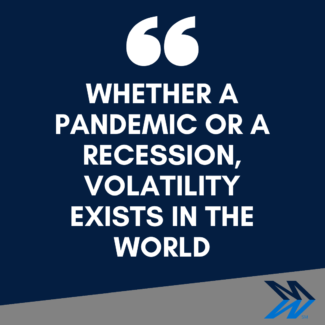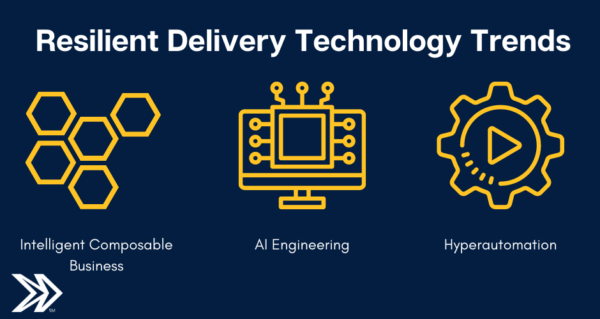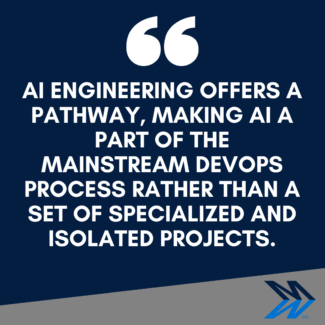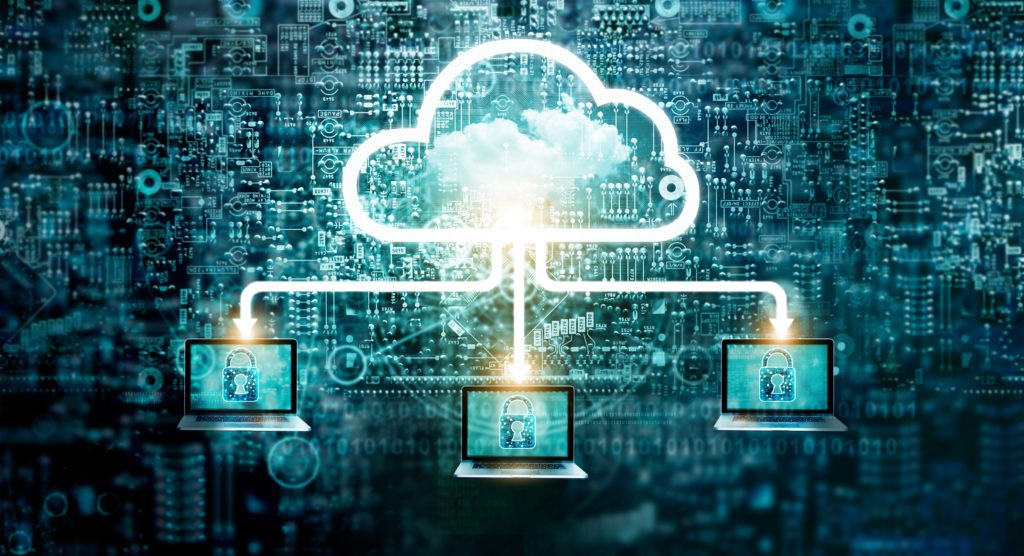November 13, 2020
By: Kim Morgan
Each year, research firm Gartner unveils the top strategic technology trends at its annual IT Symposium/Xpo America’s conference. This year was no different, except the conference was held virtually instead of in-person.
This year, Gartner emphasized how COVID-19 affected companies and organizations. It also highlighted the need to focus on building resilience and adapting to unavoidable disruptions. “The need for operational resiliency across enterprise functions has never been greater,” said Brian Burke, research vice president at Gartner.
“As organizations journey from responding to the COVID-19 crisis to driving growth, they must focus on the three main areas that form the themes of this year’s trends: people centricity, location independence and resilient delivery,” Burke said.
Last week we covered the second category: Location Independence which focused shifting business to meet the needs of a remote workforce, and customers that choose to socially distance.
This week, we introduce the last category: Resilient Delivery.
 Resilient Delivery
Resilient Delivery
This category recognizes not only gradual change, but also disruption. “Whether a pandemic or a recession, volatility exists in the world.” For a long time, organizations focused on efficiency, which resulted in streamlined processes. Unfortunately, this also produced processes that were too brittle to adapt.
Within Resilient Delivery, Gartner identifies three trends:
- Intelligent composable business
- AI engineering
- Hyperautomation
Intelligent Composable Business
At the core of Intelligent Composable Business is an architecture that:
- Enables better access to information
- Can augment that information with new insights
- Is composable, modular, and can cane and respond more quickly as decisions are made.
These are all great in theory, but how does this work in practice? “Composable business means creating an organization made from interchangeable building blocks”, says Gartner. Organizations that were once efficient suddenly became fragile at a time when they needed to be flexible. Businesses that were smart pivoted to a more modular setup, creating a composable business.
The modular setup allows a business to reorganize its parts to meet changing needs. These changes can include internal factors such as large-scale changes in work force (such as employees suddenly working remotely) or changes to supply-chain.
Example: when the COVID-19 pandemic shuttered in-person businesses in March, government institutions dealt with a massive influx of newly unemployed or furloughed people seeing government benefits under the CARES act. Since people could no longer visit aid offices in person, websites and phone lines were flooded with new customers. More savvy institutions utilized AI and robust websites, adopted remote work capabilities, and even rapidly deployed call centers to handle this influx and were able to render services.
The use of AI brings us to the second trend in this category: AI Engineering.

AI Engineering
AI Engineering promotes a more robust strategy that is scalable and reliable under adverse conditions. Often, AI projects fail due to issues with maintenance, complicated databases, or even reliability. AI Engineering integrates three core pillars:
- DataOps, which is an automated, process-oriented methodology, used by analytic and data teams, to improve the quality and reduce the cycle time of data analytics. While DataOps began as a set of best practices, it has now matured to become a new and independent approach to data analytics.
- ModelOps, which deals with moving models through the analytics life cycle, so they are deployed faster, and thus offer more value.
- DevOps, which is a set of practices that combines software development and IT operations.
 “AI engineering offers a pathway, making AI a part of the mainstream DevOps process rather than a set of specialized and isolated projects. It brings together various disciplines to tame the AI hype while providing a clearer path to value when operationalizing the combination of multiple AI techniques.” This gives AI projects longevity and resilience, as well as allows them to adapt to other functions. Applying DevOps principles to data allows organizations to fully reap the benefits of AI engineering.
“AI engineering offers a pathway, making AI a part of the mainstream DevOps process rather than a set of specialized and isolated projects. It brings together various disciplines to tame the AI hype while providing a clearer path to value when operationalizing the combination of multiple AI techniques.” This gives AI projects longevity and resilience, as well as allows them to adapt to other functions. Applying DevOps principles to data allows organizations to fully reap the benefits of AI engineering.
Hyperautomation
Gartner defines Hyperautomation as “a process in which businesses automate as many business and IT processes as possible using tools like AI, machine learning, event-driven software, robotic process automation, and other types of decision process and task automation tools.” This may sound more like “agility” rather than “resiliency”, and indeed there Hyperautomation will ultimately result in more streamlined operations. But at its core, Hyperautomation sheds what Gartner calls “organizational debt” and unifies “a patchwork of technologies that are often not optimized, lean, connected or consistent”.
COVID-19 underscored the need for Hyperautomation as organizations scrambled to pivot business processes for remote workers and “digital-first” options. Suddenly, documents needed to be digitized for easy (and germ-free) distribution and workflows needed to evolve from totally or partially analog to totally digital. With that completely digitized world came the need for digitally automated processes across, and automation across all functional areas.
This can be done through a variety of ways: deploying collaborative software, going paperless, deploying a BYOD policy, or even deploying network access controls to monitor this newly expanded digital universe. Hyperautomation combines the right technologies in order to automate, simplify, discover, design, measure and manage workflows and processes across the enterprise.
About Mindsight
Mindsight is industry recognized for delivering secure IT solutions and thought leadership that address your infrastructure and communications needs. Our engineers are expert level only – and they’re known as the most respected and valued engineering team based in Chicago, serving emerging to enterprise organizations around the globe. That’s why clients trust Mindsight as an extension of their IT team.
Visit us at http://www.gomindsight.com.
About the Author
Kim Morgan is part of the Marketing Department at Mindsight. Since 2007, she has devoted her career to using digital media to educate and effectively communicate a variety of topics at all levels of expertise. Kim’s favorite part about Mindsight is how team members are encouraged to always be curious, and continue developing not only professionally, but also personally. When not working, she can be found toting her 4 kids around in her sweet sweet minivan while rocking out to hits from the late 90’s and early 2000’s.


